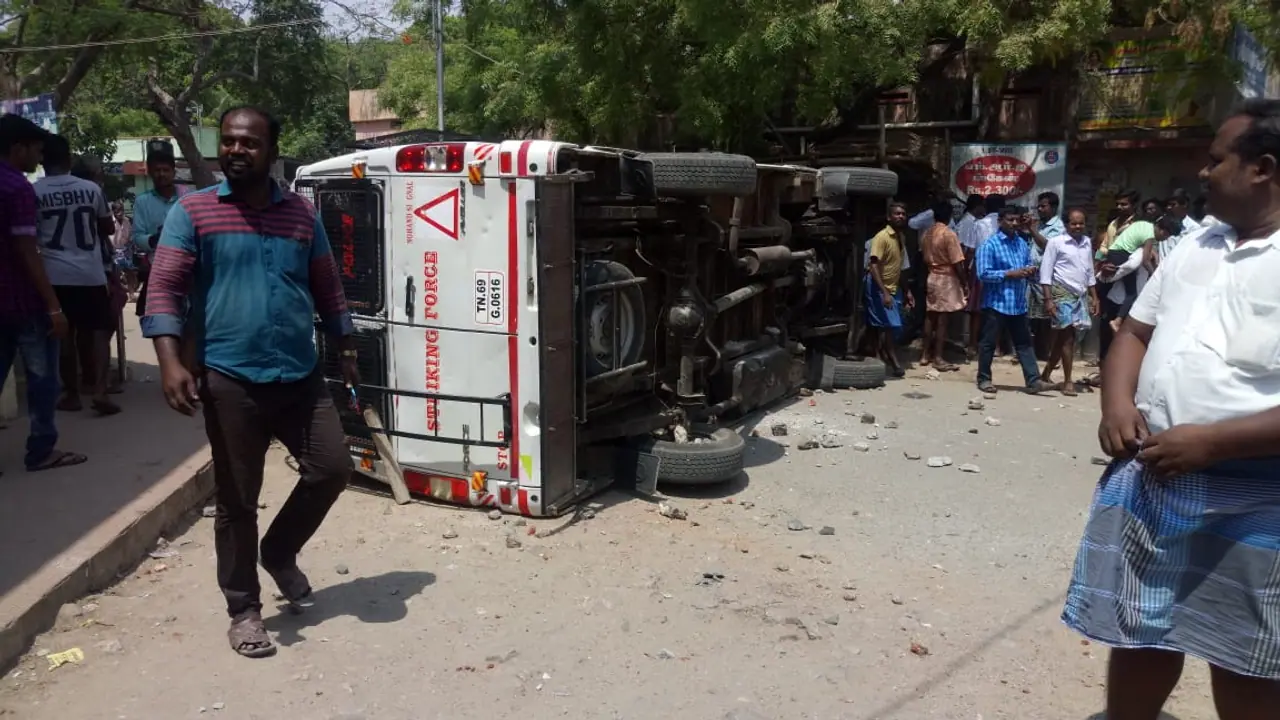On May 22, people of Thoothukudi started a massive protest despite a Section 144 of the IPC being placed by the police around Sterlite industries. This was to protest against the expansion of the plant in a city where it has wreaked havoc in the lives of many people, claim its residents. Nine people were killed on May 22 and three more were killed on May 23. But why are the people of Thoothukudi risking their very lives to protest for the closure of this factory?
Sterlite Copper represents the copper unit of Vedanta Limited producing 40000 tonnes per annum unit in Thoothukudi, Tamil Nadu. The company wants to expand its unit in the city. While it has been in operation in Thoothukudi since 1997, the company has been embroiled in many controversies since. The locals have been protesting against the pollution caused by the plant demanding its closure. The protesters dragged the issue to the court in 2010 and it's been a back-and-forth exercise from the Madras HC to the SC. The facility was even inspected by the Environmental Engineer and it was found the emissions were reportedly within permissible limits. The gas leaks from the facility soon after opened a fresh chapter of agitations, closures, while even dragging the National Green Tribunal into the picture and the case landed ultimately in the Supreme Court, which, according to reports, in 2013, directed Sterlite to pay Rs 100 cr to the collector.

The pollution control board of Tamil Nadu rejected Sterlite's plea to renew Consent to Operate (CTO) for the existing smelter plant at Thoothukudi for want of more clarifications. On May 22, people of Thoothukudi started a massive protest despite a Section 144 of the IPC being placed by the police. They were eventually fired upon, which led to the deaths of nine protesters. But what is it about the Sterlite Industries where people are taking to the streets without the fear of repercussions?
To start with, the protests against Sterlite is decades old. The Ministry of Environment and Forests gave environmental clearances to the company in 1995 and it began constructing its plant at Thoothukudi. However, it violated a stipulation that the factory must be located 25 kilometres away from the Gulf of Munnar. The clearances were challenged in the Madras High Court in October 1996. By 1997, complaints started pouring in from the state electricity board's sub-station and a from another factory where their workers were falling ill due to the smoke emanating from the Sterlite plant.
The factory was closed down in 1998 under the Madras High Court's orders but was re-opened within a few days after it was given a clean chit by the National Environmental Engineering Research Institute.
In 1999, 11 workers at the All India Radio station near Sterlite complained of distress due to a gas leak and had to be hospitalised.The TNPCB and District Administration gave the company a clean chit once again.
In 2001, locals complained of polluted water and release of toxic wastewater from the plant, which mixed with the rainwater and entered three tanks that provided potable water to most of Thoothukudi.
Over the next decade, Sterlite continued to breach environmental guidelines and was given clean chits every time a case was filed against them.
In 2013 however, Thoothukudi town experienced a massive gas leak with people reporting suffocation, coughing, eye irritation and miscarriages. TNPCB took cognisance of the incident only after outrage from the residents. In fact, the event took a bigger turn when the case was sent to the Supreme Court. The apex court did not order for the closure of the factory. Instead, it asked Sterlite to only pay Rs 100 crore as fine.
Fresh protests started against Sterlite industries after talks of construction of a second copper smelter plant by Sterlite in Thoothukudi started doing the rounds. This culminated on May 22 when protesters attacked policemen when they were lathi-charged upon by the cops. They broke several vans and also hurled stones at them. The police saw the situation getting out of their hands and opened fire. Nine were killed. On May 23, the protesters came back again, this time demanding justice for the people the police killed. Police opened fire again and killed three people.
And hence you can see that Thoothukudi is burning. If not from the police firing, then from the poisonous fumes and water from the Sterlite factory.
